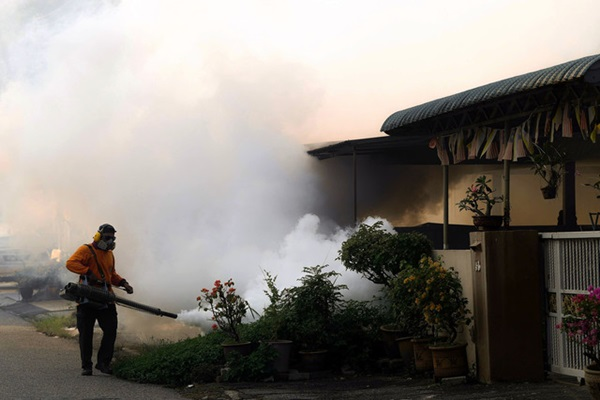Spike in dengue cases in rural Perak
IPOH, Jan 4 -- The number of dengue fever cases have shown a hike in the rural areas in Perak last year and are believed to be mainly caused by improperly disposed off garbage.
State Health, Consumer Affairs, National Integration and Human Resources Committee chairman A. Sivanesan said the urban areas had good garbage management systems by the local authorities as compared to the rural areas.
‘’The main cause in the hike in dengue fever is believed to be due to the garbage which is not managed well in the rural areas compared to the urban areas,’’ he told a media conference on Infectious Diseases Prevention and Control Programme for Nurseries and Kindergartens in the Kinta district here today.
‘’To date, the hotspots for the disease are in the Muallim and Batang Padang districts,’’ he said.
‘’So, the authorities must look at the problem and take measures to overcome it. If the garbage is not cleared, it will result in dengue fever and also chikungunya,’’ he said.
He said 168 dengue cases were recorded last year in the Muallim district compared to 38 cases in 2018, namely, an increase of 342.1 per cent.
Meanwhile, 356 cases of dengue were recorded in Batang Padang last year compared to 123 in the previous year or an increase of 189.4 per cent.
Sivanesan said rural residents should seek a solution to dispose of garbage correctly or to transport it to the closest town to dispose of them, as an alternative.
A total of 350 of people, comprising kindergarten teachers and medical practitioners, were present at the programme organised by the Kinta district Health Office and the Kelab Rotary Ipoh Selatan (KRIS) to give awareness on the prevention and control of infectious diseases at nurseries and kindergartens.
-- BERNAMA
HealthEdge
EXCLUSIVE

Pet Vaccination, Public Awareness And Surveillance Key Towards Rabies-free Southeast Asia - Experts
KUCHING, Dec 11 (Bernama) -- The goal of making Southeast Asia free from human rabies can be achieved through a total understanding of the disease, how it can be prevented and responsible pet ownership among communities, say experts.
read more ››IN FOCUS

TAVI KAEDAH BAIK PULIH INJAP JANTUNG TANPA PEMBEDAHAN




